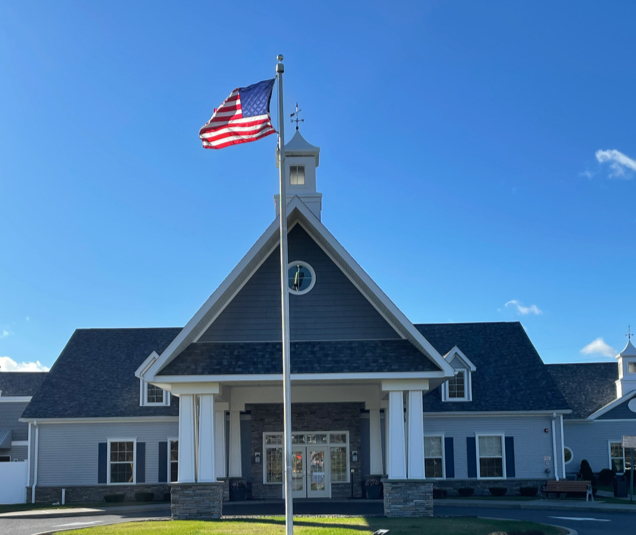Language allows us to connect, communicate, and share beautiful moments with the people we love. However, when conditions like dementia are involved, communication becomes more complicated. Dementia can make it harder to share thoughts and emotions, and without professional support, this becomes a significant problem.
Language skills like understanding simple words and phrases learned early in life are often retained longer when dementia is involved. However, as the condition develops, a person may notice their loved one struggling with complex sentences or communication.
The Brain & Language
When we speak, listen, read, or write, we use several parts of the brain. Specific regions work together in harmony to help us speak and understand.
Regions like the Wernicke’s area and the Broca’s area are essential for processing and producing language. The Wernicke’s area helps us understand speech and written words, while the Broca’s area forms the speech itself. These are critical parts of the brain, and when they don’t function properly, a person struggles to communicate.
One reason for this is how the brain handles long-term memory versus short-term memory. Simple words and phrases learned early in life are stored as long-term memories. The connections retaining these memories stay intact, even as dementia progresses. Meanwhile, short-term memory and newly learned information become increasingly fragile.
How Dementia Affects Language & Communication
Dementia, a progressive condition known to damage the brain, is extremely complex. It affects different regions of the brain and causes a condition known as neurodegeneration. This means that nerve cells and connections between these different regions become damaged and eventually lost.
As dementia progresses, these regions struggle to connect with one another, which leads to strange new symptoms. While different types of dementia affect different parts of the brain, they can all eventually lead to communication challenges. The condition affects the regions responsible for speaking, comprehending, and communicating in general.
Signs Of Language & Communication Problems
Dementia often develops subtly. If you don’t know what to look out for, it’s easy to mistake early signs of dementia for simple age-related cognitive changes. However, early detection of dementia is key—it means you can get your loved one support sooner rather than later.
Some common signs of dementia-related language and communication problems include:
- Difficulty finding the right words during a conversation
- Frequently pausing or struggling to complete sentences
- Substituting incorrect or unrelated words when speaking
- Repeating words or phrases within a short time
- Losing track of conversations or forgetting the topic
- Trouble understanding written or spoken language
As dementia progresses, these signs may evolve. For example, your loved one may begin relying on non-verbal cues rather than language itself. While this can be helpful in the short term, these abilities may also become compromised.
If these symptoms sound familiar, it’s time to visit a healthcare professional for a proper diagnosis. This helps you narrow down what’s causing your loved one’s communication challenges—and what you can do about it.
How Memory Care Can Help
Supporting a loved one with dementia is rewarding, but that doesn’t mean it’s always easy. As communication becomes more challenging, it’s easy to become frustrated. Fortunately, you aren’t alone, and you have options.
One incredible option for older adults living with dementia is a lifestyle called memory care. This is a specialized program designed specifically for dementia. Memory care is a residential community full of caregivers, programs, and activities tailored to meet dementia’s unique challenges. This is invaluable when dementia is involved.

How Memory Care Can Support Language Retention
Every community is a little different, but they share a common goal—to preserve your loved one’s dignity and quality of life. To achieve this, communities utilize a range of activities and therapy programs designed to promote cognitive engagement and slow cognitive decline.
Some common activities in memory care include:
- Music therapy sessions to stimulate memory and emotions.
- Art and creative expression activities to encourage imagination and focus.
- Reminiscence therapy to help residents connect.
- Cognitive games and puzzles aimed at maintaining problem-solving skills.
- Physical exercises like chair yoga or group walks to support overall health.
- Sensory stimulation activities, such as aromatherapy, to evoke memories and mood.
- Social engagement opportunities, including group discussions and supervised outings.
This helps strengthen the brain and slow cognitive decline. Meanwhile, caregivers work to adopt new communication strategies to help your loved one stay connected to others. We’ll also work closely with your family to make it easier than ever to strengthen your bond with your loved one.
Staying Connected with Your Loved One
Caring for a loved one with dementia sometimes means navigating new challenges. Communication may change over time, but that doesn’t mean you can’t stay connected. By adjusting your approach—and trusting a team of caregivers like ours—you can keep showing your loved one that they’re loved, cared for, and respected as the unique person they are.
Here at Peregrine Senior Living at Colonie, we know that dementia is complicated. In our community, your loved one is treated with respect and dignity, and we work hard to show them how much we care. Schedule a visit with our community today to find your loved one’s new home!













Want to stay connected with what’s happening across our community?
Follow us on Instagram for updates, moments we love, and stories worth sharing.
Come join the community by following us via the link below ⬇️
www.instagram.com/peregrinecolonie/ ... See MoreSee Less
0 CommentsComment on Facebook
Peregrine Baking Group with Chef Patrick! 🧑🍳
We enjoyed making rich chocolate brownie bites with fresh mint icing, but we loved eating them even more! 😋 ... See MoreSee Less
3 CommentsComment on Facebook
We had snooow much fun crafting sock snowmen! ☃️🧦❄️ No snow required 😉 ... See MoreSee Less
2 CommentsComment on Facebook
This month, we celebrate the incredible achievements, resilience, and cultural richness of Black Americans who have shaped our history and continue to inspire our future.
We believe in honoring every story and embracing the diverse experiences that strengthen our community. May this month remind us all to listen, learn, and uplift—today and always.
peregrinecolonie.com/ ... See MoreSee Less
1 CommentsComment on Facebook
A day with our feathered friends - learning about birds of prey and the importance of wildlife conservation! 🦅🌎🌱
It was such a privilege to host The Wildlife Institute of Eastern NY and their Silent Wings program - thank you for sparking curiosity, joy, and an appreciation of nature in our community 💚 ... See MoreSee Less
5 CommentsComment on Facebook
We just wanna bang on the drum all day 🥁🪘💛 ... See MoreSee Less
1 CommentsComment on Facebook
Dreaming of spring while the snow falls outside ❄️
We love flower arranging! 💐 ... See MoreSee Less
1 CommentsComment on Facebook